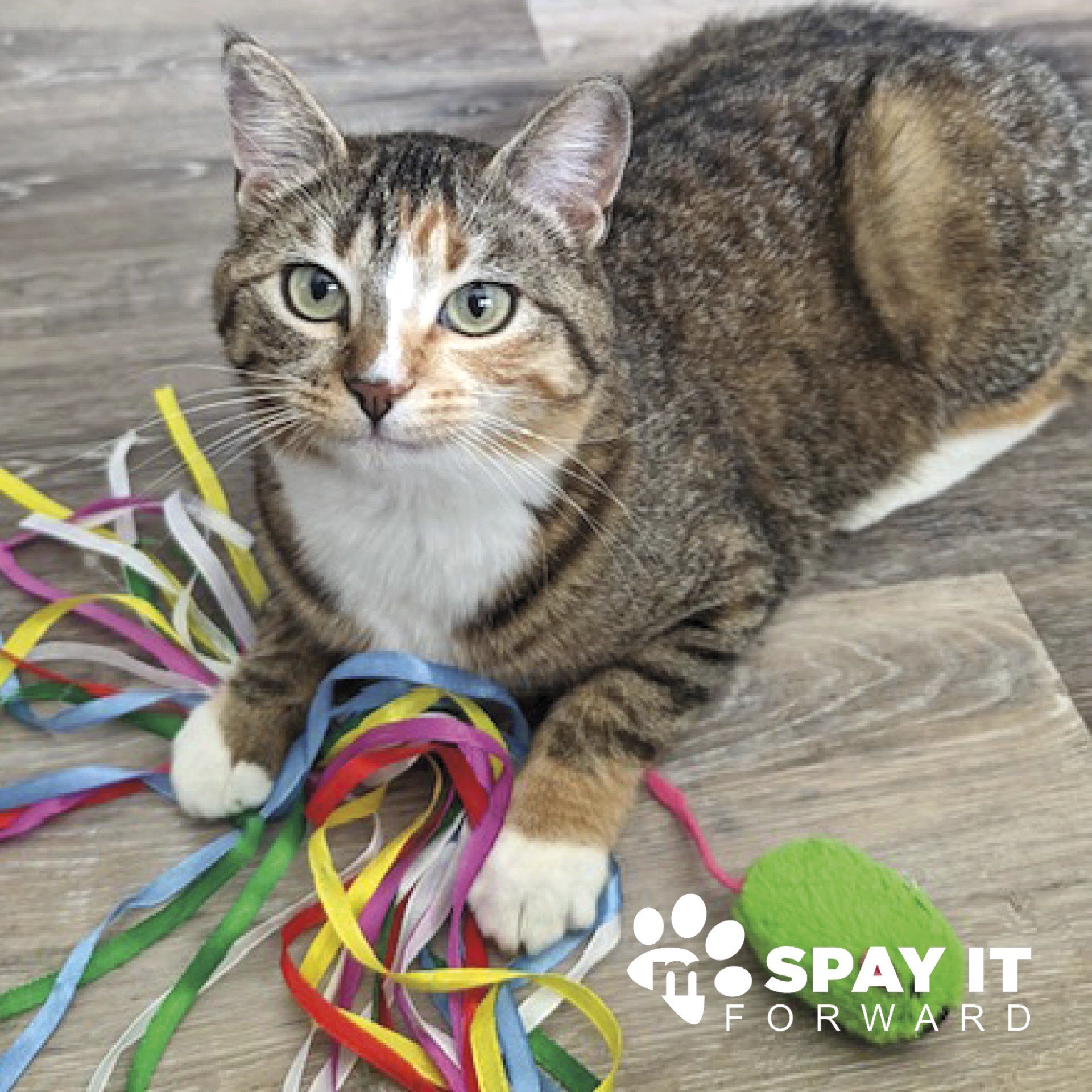Caring for Newborn or Orphaned Kittens
Some helpful hints:
- New kittens need a quiet, separate room where they can be confined and sheltered form household traffic. Try to find a room where there are no dangers such as rocking chairs, recliners, washers, driers or other appliances that a kitten could crawl into and get stuck or injured. Kittens are very tiny and can be easily crushed by human feet, chairs or doors opening and closing.
- A large cardboard box can be good for the first few days. Once they start to climb the sides of the box, it is time to find them a bigger space, but again, try to keep them from going under things where they aren’t easily reached or monitored.
- Kittens need places to hide and huddle together, and they like to sleep snuggled up together. A small basket or something similar with a soft liner can help them feel snug and secure provide a cozy sleep spot. Even a cardboard box turned upside down with a nice towel under it is a good "kitten house" for them to feel secure in.
The nature of kittens and what to expect:
- It is good to get kittens used to human touch, but they must be handled gently, and held in closely. At this young age they should adjust quite quickly. They will be less frightened if you approach them from a low position, such as sitting on the floor, rather than standing.
- Most kittens will learn to like human touch quickly if they are handled well in the initial stages.
- Kittens may run and hide from you when you enter their room, so it's important that they have hiding places to feel secure. Use toys to draw them out and to help them be comfortable and socialize as quickly as possible.
- When they are still tiny kittens, it is better to have just one or two people handle them, rather than many, so they can learn a few familiar smells. The kittens will progress more quickly with if they are only handled by a few people, until they become comfortable with human touch.
What they'll need right away:
- Orphaned baby kittens will need Mammalac formula, mixed and ready to feed them from a bottle.
- It is good to get kittens to eat soft canned kitten food when they are old enough to start having solids – at about four or five weeks old. Soft food will satisfy them better and will get their bowels moving more quickly. A good practice is to mix a bit of canned kitten food with a bit of formula and feed each kitten individually from a plastic spoon. Hold it for them and let them lick the mush from the spoon. Once they catch on to spoon feeding, they can probably eat this mush from a shallow dish. Have a warm, damp facecloth handy at feeding time, as they will likely stand in the food, and/or stick their entire faces into it. They will need a little help with cleanup in those initial stages.
- Depending on how well the kittens adjust to eating the mush from a spoon and then a dish, the kitten food and formula can be served in separate dishes. In another week or so, they may be ready for dry kitten kibble. However, continue to give them canned food and offer them the formula for at least a couple of weeks (until 7-8 weeks). At this point, though, set out water in a dish as kittens need water even if they are still lapping formula.
- For the first few weeks, kittens will likely need to be fed about 4 times a day in the morning, at noon, suppertime and before bed - at least until they can free feed from a bowl.
Keeping them healthy:
- It is VERY important that the kittens be stimulated in order to eliminate. A damp, warm terrycloth facecloth rubbed gently over their genitals should stimulate them to go. The idea is to imitate the feel of the mother's tongue, which is how they are stimulated naturally. For the first day or so, depending on how much canned food they are ingesting, they may not have any bowel movements and will only pee. However, 24 to 48 hours after they have begun eating canned food, they should also be pooping a bit when they are stimulated. Shortly thereafter, they will be able to go on their own, but continue to stimulate until you have noticed them eliminate without stimulation. They may just do it on their bed at first, but if you provide a shallow pan full of litter, they will soon use it. They will instinctively dig in there and know what to do. Start with a large cake pan for the really tiny ones.
- The kittens' food and liquid intake should be closely monitored as well as their output. Introducing diet changes such as Mammalac and canned kitten food is hard on their little delicate systems. They have probably only had mother's milk until you got them. She may have brought them mice or birds, but the mainstay of their diet would have been milk. It will take a few days for their digestive systems to adjust to the changes. Their stools will be a bit soupy at first but once they are eating canned food regularly it should become more firm, not runny. Liquid poop is a cause for concern and may signify illness. Kittens can become dehydrated quite quickly, and it can be serious so seek veterinary care if you notice consistently runny poop.
Grooming:
- Normally the momma cat would help the kittens bathe until they are about 6 weeks old. Kittens may need a bit of help in the early stages. A very soft-bristled brush, or a rather course terry towel or facecloth can mimic mother cat's tongue and help their fur stay nice.
Amusement:
- As kittens grow, develop and become comfortable in their surroundings, they will want to play and need room to roam around that is free of dangers. Kittens will climb anything they can get their claws into and you must watch that they have a soft landing if they fall or leap. Tiny kittens are not that good at judging height and/or distance, so just be sure their environment is safe for kitten play.
Development:
- We want kittens to stay healthy and to grow and develop as well as they would have under their mother's care. We want them to trust humans and be great companion cats. The way they are touched and handled in these initial stages is of the utmost importance in influencing their personalities as older kittens and adult cats. They must be handled gently and lovingly so they will trust well.
The job of raising baby kittens is a demanding, but rewarding. It is an awesome honour, and so much fun. You are shaping the lives of these tiny beings and determining the kind of animals they will turn out to be.










